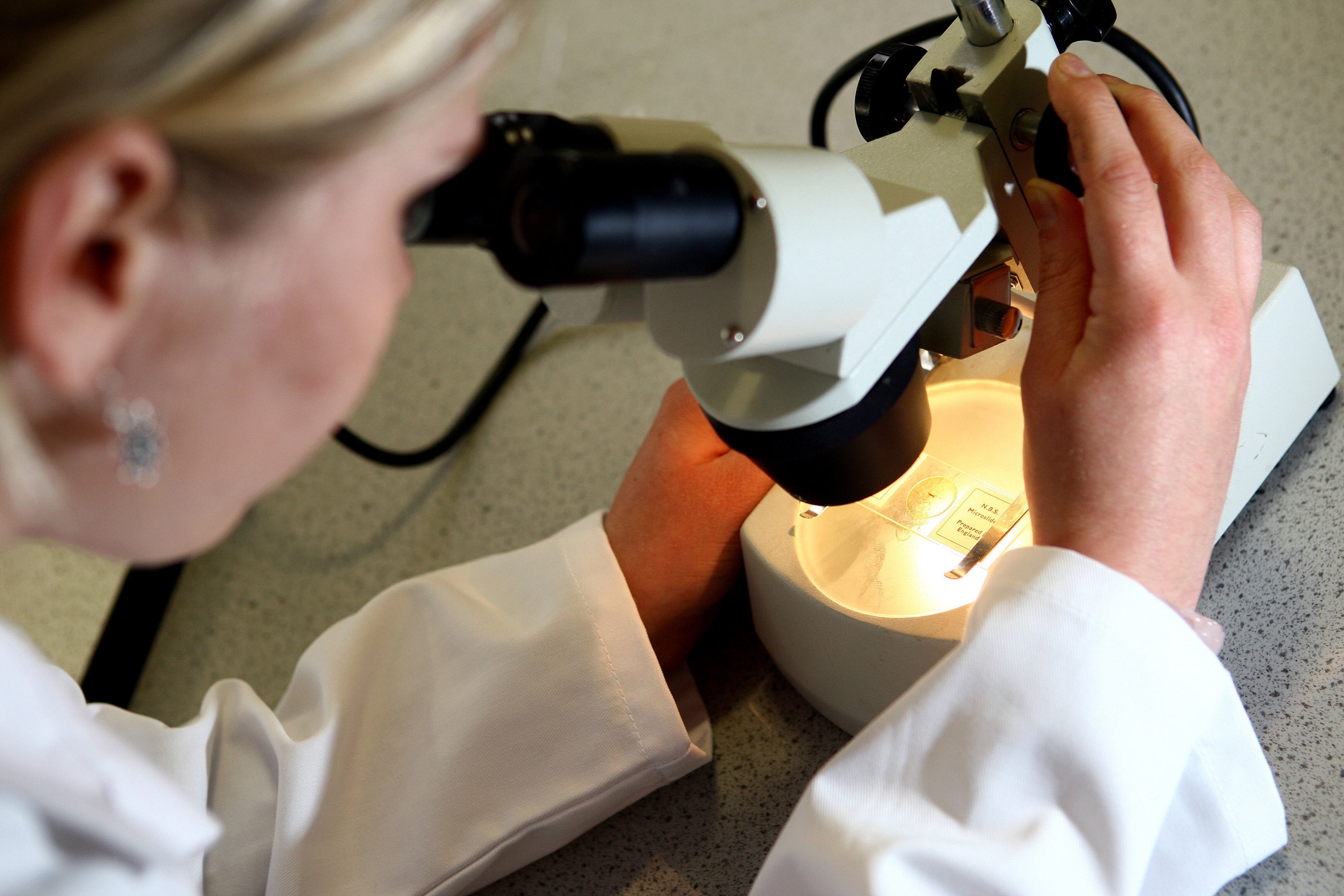Study seeks way to treat brain bleeds and reduce risk of disability and death
Scientists are working to find a way to prevent brain cells being damaged by iron from the blood that builds up in the brain after a bleed.

Your support helps us to tell the story
From reproductive rights to climate change to Big Tech, The Independent is on the ground when the story is developing. Whether it's investigating the financials of Elon Musk's pro-Trump PAC or producing our latest documentary, 'The A Word', which shines a light on the American women fighting for reproductive rights, we know how important it is to parse out the facts from the messaging.
At such a critical moment in US history, we need reporters on the ground. Your donation allows us to keep sending journalists to speak to both sides of the story.
The Independent is trusted by Americans across the entire political spectrum. And unlike many other quality news outlets, we choose not to lock Americans out of our reporting and analysis with paywalls. We believe quality journalism should be available to everyone, paid for by those who can afford it.
Your support makes all the difference.Researchers are developing a new method for treating brain bleeds which they hope will reduce the risk of brain damage, disability and increase the chances of survival.
Brain haemorrhages, or haemorrhagic strokes, occur when blood leaks from a blood vessel in or around the brain.
In the UK it accounts for about 15% of all strokes, experts suggest.
There are currently no existing medications to prevent or treat brain bleeds.
Scientists at Nottingham Trent University are working with the University of Manchester to find a way to prevent brain cells being damaged by iron from the blood that builds up in the brain after a bleed.
Many of those who suffer a brain haemorrhage will sadly die and those who survive can have permanent disabilities and so the creation of new drugs is essential
Brain damage, as well as disability and death, can be caused by the organ’s reaction to the sudden presence of excess blood.
Almost half of patients will die within a month of suffering a brain haemorrhage, researchers say.
The researchers, funded by Brain Research UK, are focusing on drugs called iron chelators, which stick to iron to prevent it building up in the body.
They will package these drugs into bubbles that can be used to more effectively deliver them into the body.
Because of the blood brain barrier, which works to prevent potentially harmful toxins reaching the brain, it can be difficult to target affected areas of the brain.
But the researchers hope their method will mean the drug can stay in the bloodstream for longer and allow enough of it to get to the area of the brain that contains the bleeding.
Lead researcher Dr Zahraa Al-Ahmady, a scientist at Nottingham Trent University’s School of Science and Technology, said: “Unfortunately, no specific medications currently exist to prevent or treat brain haemorrhage.
She added: “There are severe issues related to having this blood and iron accumulation in the brain, which contributes to the death of brain cells.
“We hope our approach will prevent this excess iron from damaging neurons and other tissue and be a new approach to blocking blood-induced brain damage after bleeding.
“Many of those who suffer a brain haemorrhage will sadly die and those who survive can have permanent disabilities and so the creation of new drugs is essential.
“We are aiming to find a way to enable treatment to better infiltrate the brain and to remain at the disease site for longer before more serious damage occurs.”
Professor Stuart Allan of the University of Manchester said: “The death rates due to brain haemorrhage have not changed for several decades.
“This sort of research is therefore vital to find the new treatments necessary to improve survival.”
The work, which will involve the use of mice and patient samples, will take about three years.